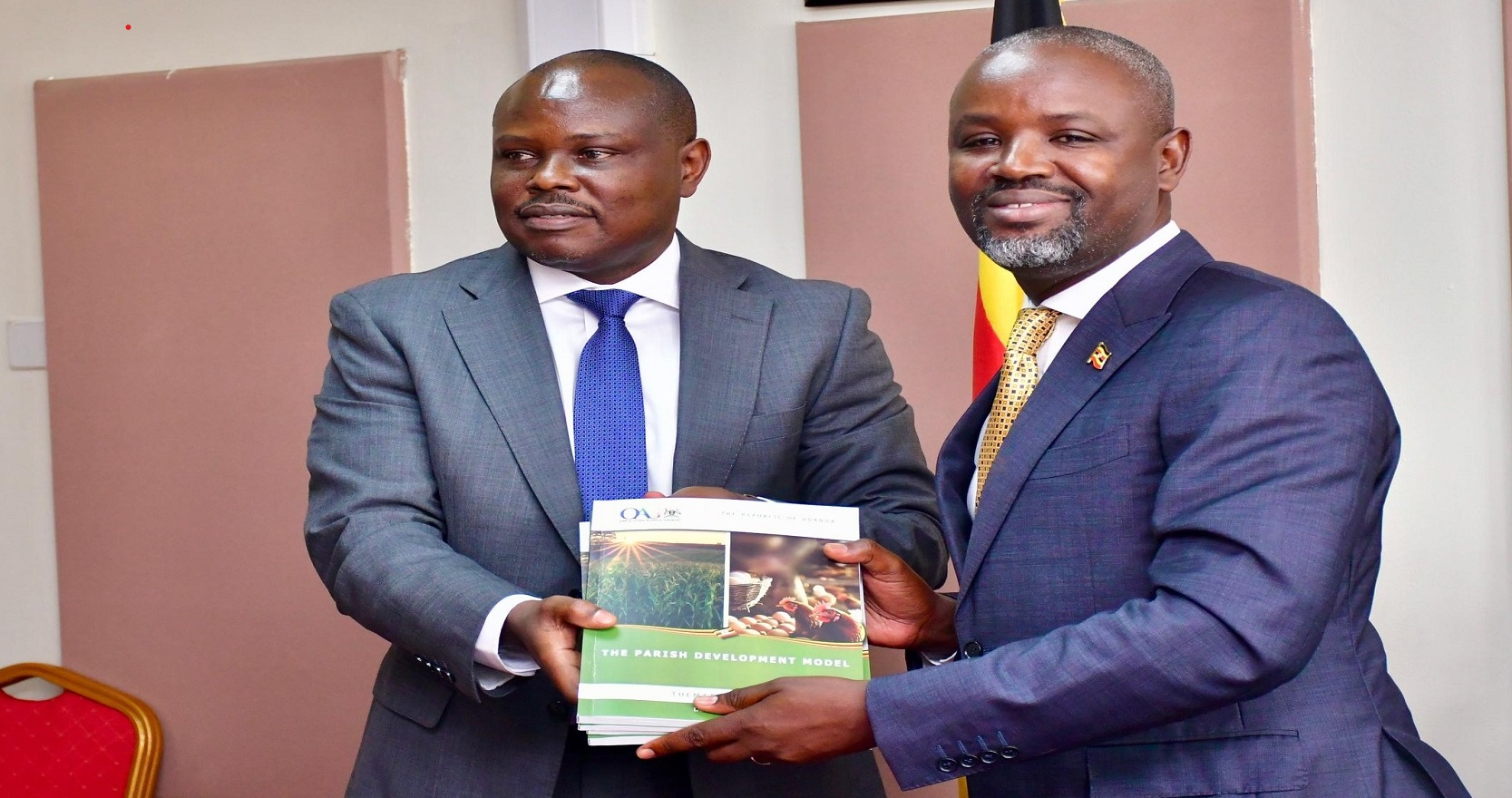KAMPALA, January 20, 2025 – The Parish Development Model [PDM] has made notable progress in its implementation for the 2023/2024 financial year [FY], though several challenges have emerged, particularly in fund disbursement, project execution, and staffing, as noted by the Auditor General, Edward Akol, in his annual report to Parliament for the audit year ending December 2024.
The report indicates that the government allocated a total of Shs 1,097.633 billion for the PDM in the FY 2023/2024, with Shs 1,059.4 billion earmarked for the Parish Revolving Fund [PRF]. This fund is intended to support 10,594 PDM Savings and Credit Cooperative Societies [SACCOs] across 176 local governments [LGs] and the Kampala Capital City Authority [KCCA], with each SACCO receiving Shs 100 million to finance viable enterprises selected by the programme beneficiaries. An additional Shs 38.233 billion was set aside for administrative and support activities across five ministries, departments, and agencies [MDAs] as well as KCCA.
Progress in fund disbursement
According to the report, of the Shs 1,059.4 billion allocated for the PRFs, nearly all of it – Shs 1,058.37 billion [99.9 percent] – was successfully transferred to the SACCOs that met all the requirements. However, the report highlights challenges regarding the timely disbursement of funds. In the third quarter of FY 2023/2024, no funds were released to any SACCOs, despite an expected Shs 529.250 billion. Later, in the fourth quarter, 10,582 SACCOs received Shs 529.100 billion, which was still less than the anticipated amount.
Moreover, the report states that the second PRF disbursement, which had been expected in the fourth quarter, was delayed until the first week of July 2024, outside the financial year. Seven SACCOs did not receive any PRF in FY 2023/2024 but were allocated a total of Shs 0.7 billion in the first quarter of FY 2024/2025, highlighting inconsistencies in fund distribution.
Implementation and monitoring challenges
Further inspections by the Auditor General revealed several issues with project documentation and accountability. A total of 342 beneficiaries in 253 SACCOs had implemented ineligible projects, while 170 beneficiaries in 124 SACCOs were found to be running non-existent projects. ”Additionally, 1,004 beneficiaries failed to provide adequate supporting documentation for PRF funds amounting to Shs 1 billion, and 26,525 beneficiaries involved in crop production projects received funds outside the appropriate planting seasons,” says the report.
Despite these challenges, a significant portion of the allocated funds was disbursed, with 79 percent of the PRF, amounting to Shs 0.708 billion, already transferred by the end of FY 2023/2024. However, around 21 percent of the PRF, approximately Shs 0.192 billion, remained unspent.
Challenges in s and infrastructure
Staffing shortages in local governments were also noted, with only 44 percent of the required extension workers in 135 LGs fully employed. “Many of these extension workers, who play a vital role in supporting PDM beneficiaries, lacked essential tools such as motorcycles, as well as professional certifications. Additionally, 2,190 SACCOs in 96 LGs had not formed the necessary supervisory or executive committees, hindering their ability to effectively manage and oversee projects,” says the report.
Technological and Administrative Issues
According to the report, several technological challenges were also observed in the integration of the Wendi mobile application platform, designed to facilitate financial transactions for PDM SACCOs. “While 66 LGs had all their SACCOs using the platform, 32 LGs and KCCA had not yet implemented it.
Similarly, only 3 out of 13 participating financial institutions had integrated their systems with the platform, and integration with other key systems, such as the Integrated Financial Management System [IFMS] and the Ministry of Trade, Industry and Cooperatives, had not been completed,” the report states.
Recommendations and Next Steps
The findings underscore significant obstacles to the full success of the PDM, particularly in the areas of funding, logistical support, technological integration, and staffing. The Auditor General has recommended that accounting officers and relevant stakeholders take urgent action to address these challenges in order to achieve the programme’s intended objectives. “Without improvements in these areas, the PDM’s goal of fostering sustainable community development may be at risk,” says the report.
Latest developments
According to the Ministry of ICT and National Guidance Status Report on PDM Implementation, the government had capitalised the PDM to the tune of Shs 2.1 trillion, benefiting approximately 1.8 million people from nearly 2 million households by 12 October 2024. Additionally, the Ministry of Finance released another Shs 529 billion in the third quarter of FY 2024/2025 this January.
Launched in February 2022, the PDM is an ambitious programme aimed at improving the livelihoods of Ugandans at the parish level by supporting income-generating projects such as piggery, poultry keeping, coffee growing, maize cultivation, fish farming, and goat rearing, among others.
While the financial resources have largely been disbursed, further efforts are needed to streamline implementation, ensure accountability, and address the issues that have hindered progress thus far, the Auditor General’s report says.
https://thecooperator.news/follow-pdm-guidelines-alebtong-rdc-urges-parish-chiefs/
